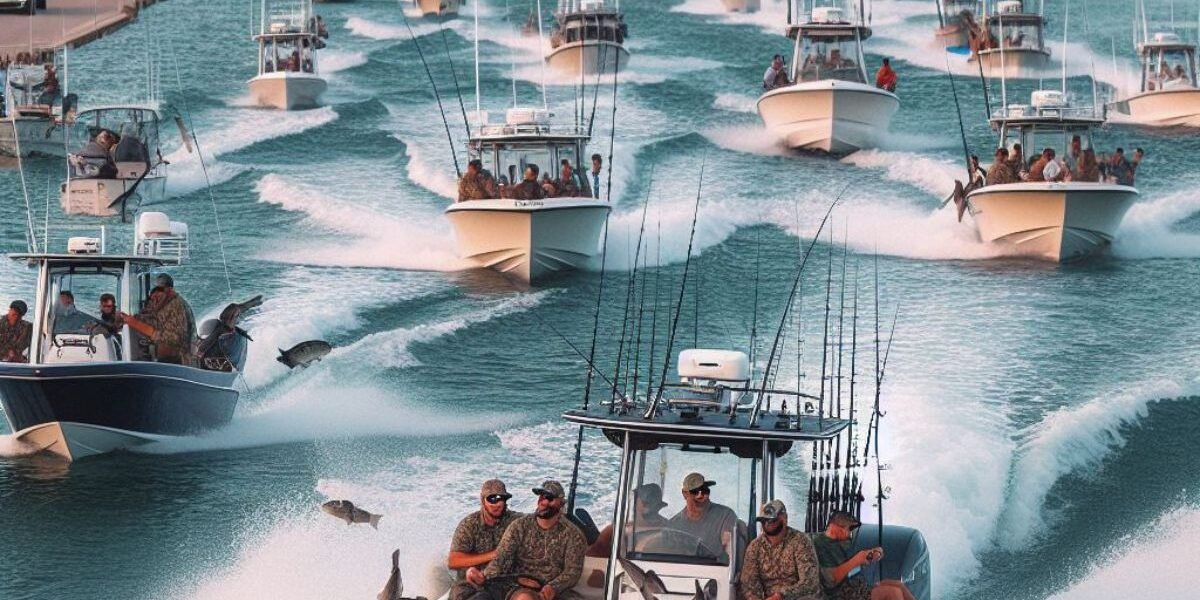Why Should Boaters Slow Down While Passing Recreational Fishing
Boaters should slow down when passing recreational fishing boats out of common courtesy and safety concerns.
When a larger boat overtakes a smaller boat, the large wakes created can cause the smaller boat to pitch and potentially damage another boat.
This is especially dangerous when a fisherman is standing on the starboard side of their small boat with their fishing poles out.
By slowing down and passing on the starboard or port side at a safe speed, boat operators can prevent accidents and ensure the safety of people fishing. Additionally, in narrow channels or near a dock, maintaining a proper way to pass will prevent potentially dangerous situations for both parties.
Excessive speed when passing a recreational fishing boat can also have negative impacts on the environment.
Large wakes can swamp smaller boats or even kayaks, posing a danger to the boater or any nearby swimmers.
In addition, passing too closely can cause fishing lines to tangle or disrupt a peaceful fishing trip.
By slowing down and passing at a safe speed, boat operators are showing proper precaution and consideration for others on the water.
Importance of Slowing Down
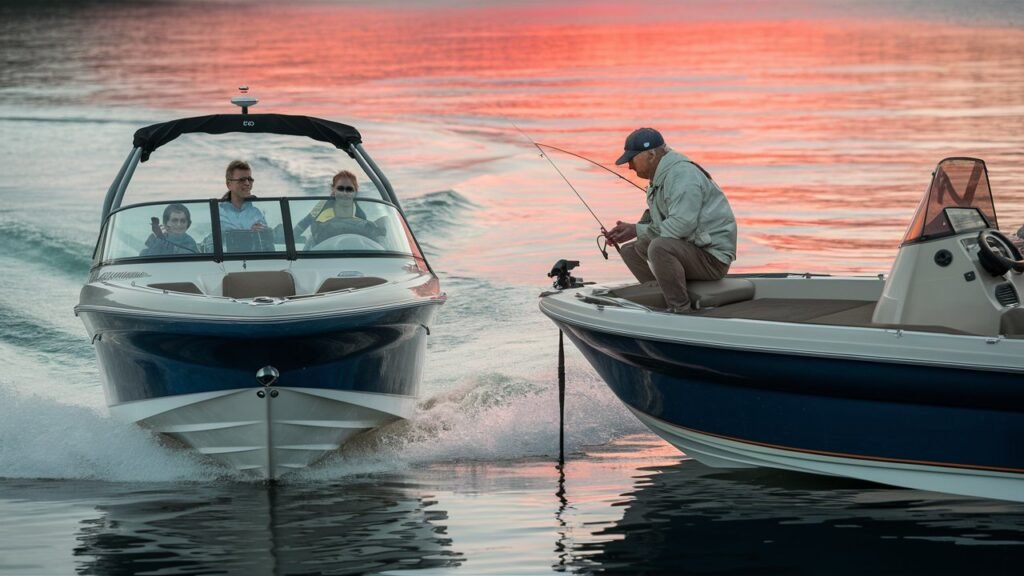
Slowing down is a crucial aspect of recreational boating that all boat operators must keep in mind.
When approaching commercial fishing boats or passing a fishing boat, it’s essential to pass at a safe distance and maintain a reasonable speed to avoid collisions.
Power boats, in particular, must be cautious of the damage caused by their wake when passing two boats because the amount of wake they produce could create a risk of causing an entanglement with the propeller of the other boat.
The coast guard recommends that boat owners go a long way in ensuring the safety of other vessels on the water.
As a general rule of thumb, boat operators must troll at a full power only in areas where there are no other boats nearby to avoid a collision.
It is also a matter of safety to show consideration for other boats on the water by slowing down in areas with high boat traffic.
Inconsiderate behavior by speeding boat owners can lead to damage caused to the hull of another boat, resulting in costly repairs.
When encountering sportfishing boats that may have several lines out, it’s crucial to pass at a safe distance to avoid the risk of entanglement.
Following the rules of the road and showing respect for other boat operators is a part of maintaining a harmonious environment on the water.
Reducing the Risk of Collision
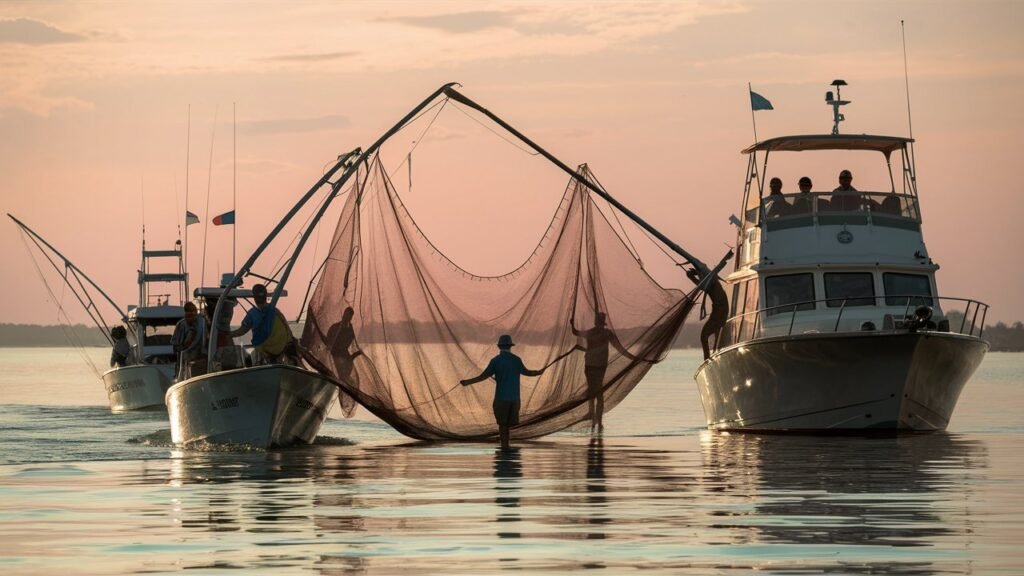
Reducing the Risk of Collision is crucial when navigating through fast-moving waters with restricted visibility.
In order to reduce the chances of a collision, boats must maintain a safe distance of at least 100 yards apart.
This can be especially challenging when faced with big waves or when encountering a barge that is over 65 feet long.
By adhering to proper navigation rules and keeping a lookout for potential hazards, boaters can help prevent accidents and ensure a safe journey on the water in 2022.
When approaching another vessel, it is important to move toward the right to avoid a collision.
This is especially true when two boats are going full speed in opposite directions.
Keeping a safe distance and following the rules of the waterway can help prevent accidents and keep everyone on board safe.
Promoting Safety on the Water
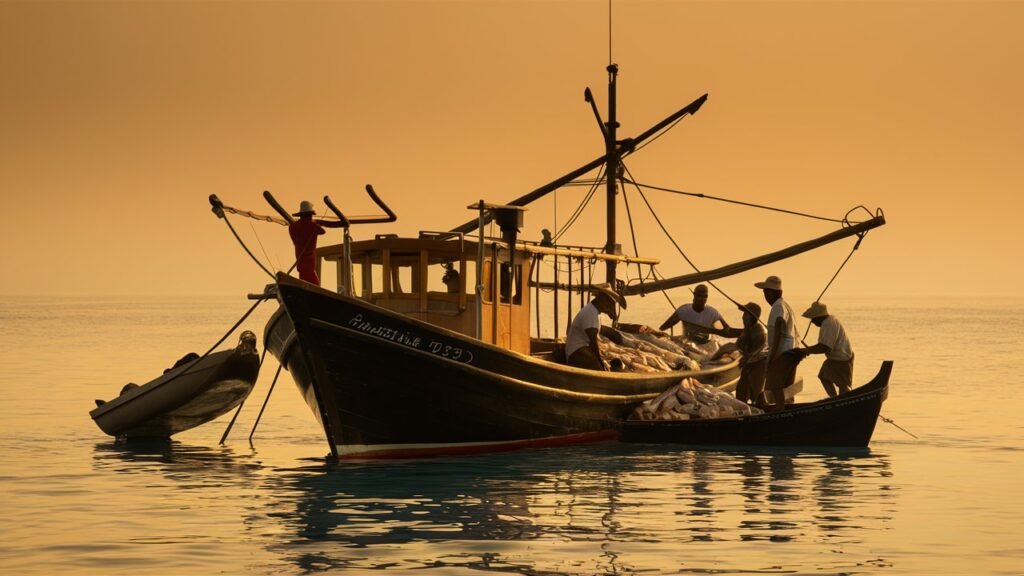
Promoting Safety on the Water
- Wear a Life Jacket: One of the most important safety precautions when on the water is to always wear a properly fitting life jacket. Accidents happen quickly and unexpectedly, and a life jacket can be the difference between life and death in an emergency situation.
- Know the Rules: Before heading out on the water, familiarize yourself with the rules and regulations of the area you will be boating in. Each body of water may have different guidelines for safety, navigation, and right of way.
- Stay Sober: Just like driving a car, operating a boat while under the influence of alcohol or drugs is extremely dangerous. Impaired judgment and slower reaction times put everyone on the water at risk.
- Stay Alert: Always be aware of your surroundings when on the water. Look out for other boats, swimmers, and obstacles to avoid potential accidents. Keeping a sharp eye out can help prevent dangerous situations from occurring.
Etiquette and Navigation
Etiquette is the set of rules and norms that govern social behavior in a given culture or society.
It includes everything from proper manners and dress codes to how to address and interact with others.
The goal of etiquette is to ensure that people can navigate social situations smoothly and respectfully, without causing offense or discomfort to others.
Navigation refers to the process of planning and following a route to reach a destination.
This can involve using maps, compasses, GPS technology, or simply asking for directions.
Navigating successfully requires a combination of spatial awareness, problem-solving skills, and the ability to interpret and follow directions accurately.
Whether traveling by land, sea, or air, knowing how to navigate effectively is crucial for reaching your intended destination safely and efficiently.
Navigating Around Fishing Boats
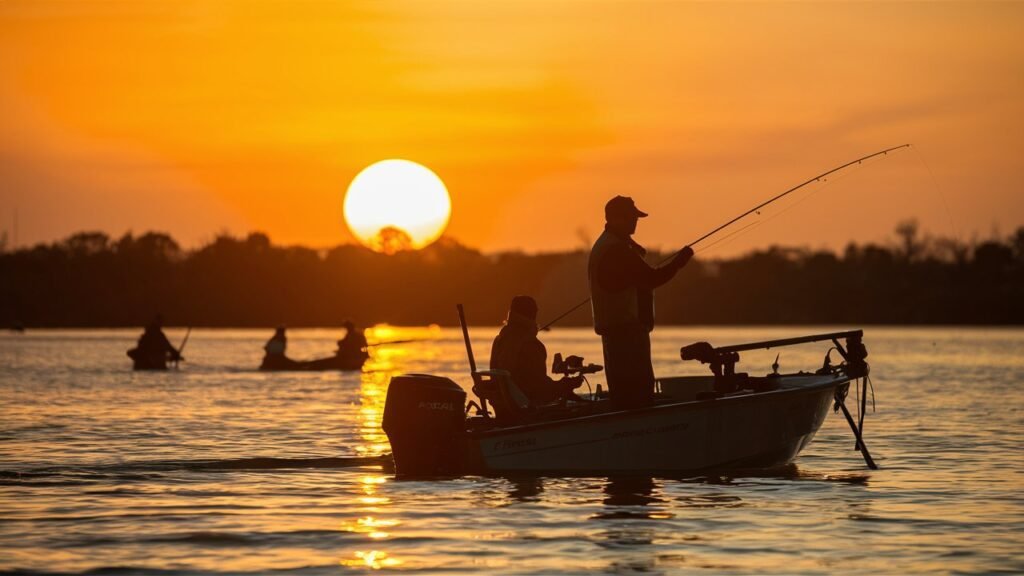
When navigating around fishing boats, it is important to always remain vigilant and aware of your surroundings.
These vessels can be unpredictable in their movements, so it is crucial to maintain a safe distance to avoid any potential collisions.
Keep an eye out for any fishing lines or nets that may be trailing behind the boats, as these can pose a hazard to your vessel.
Additionally, be respectful of the fishermen and their equipment by not disrupting their work.
Communication is key when sharing the water with fishing boats, so be sure to use proper radio etiquette and hand signals to indicate your intentions.
By following these guidelines, you can safely navigate around fishing boats and enjoy your time out on the water without any incidents.
Passing Other Boats Safely
Passing Other Boats Safely
When navigating on the water, it is crucial to ensure the safety of both your own boat and the ones you are passing.
As one boat passes another, it is important to maintain a safe distance and avoid any potential collisions.
Before attempting to overtake another boat, always communicate your intentions clearly to the other vessel.
This can be done through hand signals, radio communication, or simply by maintaining a predictable course. Additionally, it is essential to be aware of any potential hazards in the water, such as rocks, currents, or other boats.
By keeping a vigilant eye on your surroundings and acting with caution, you can ensure a safe and smooth passing of other boats on the water.
Minimizing Wake and Damage
Minimizing Wake and Damage
When it comes to minimizing wake and damage, it is important to consider the impact that activities can have on the environment.
Wake refers to the disturbance of water caused by a moving object, such as a boat or a swimming animal.
This disturbance can disrupt aquatic life and ecosystems, leading to potential damage.
By reducing speed and being mindful of the wake created, individuals can help minimize the negative effects on the environment.
Additionally, being aware of sensitive areas, such as coral reefs or nesting sites, can help prevent damage to these fragile ecosystems.
Conserving natural habitats and practicing responsible boating and recreational activities can go a long way in protecting the environment and the wildlife that depend on it.
Impact of Wakes on Fishing Boats
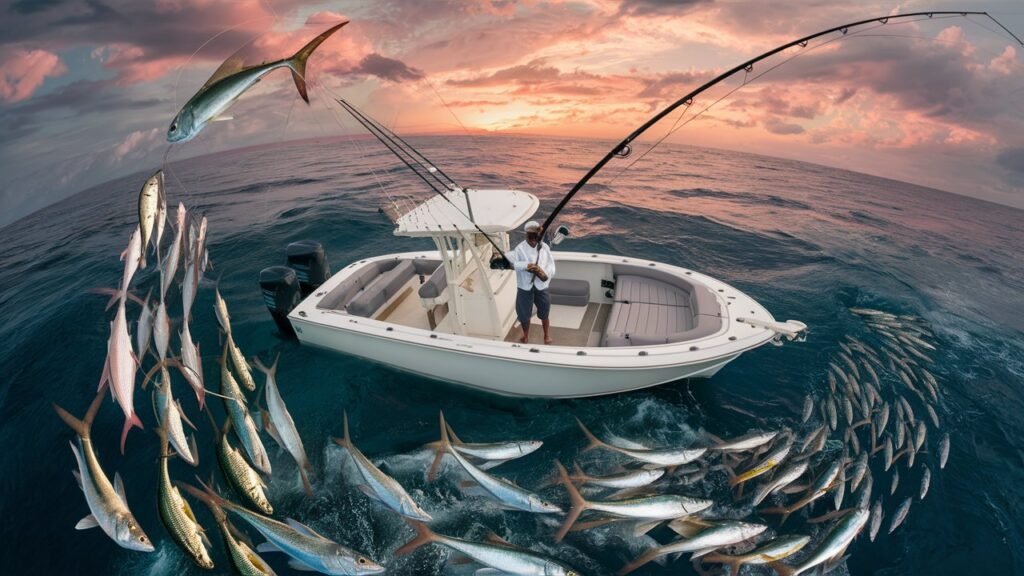
Wakes from passing boats can have a significant impact on the operation of fishing boats.
These large waves created by boats moving at high speeds can rock smaller vessels, causing instability and potential safety hazards for fishermen.
The turbulent water created by wakes can also disrupt fishing activities by disturbing the fish population and making it more difficult to catch them.
Additionally, the energy expended by fishing boats to navigate through wakes can lead to increased fuel consumption and operational costs.
To mitigate the effects of wakes, some fishermen may choose to alter their routes or adjust their schedules to avoid areas with heavy boat traffic.
Overall, the impact of wakes on fishing boats highlights the need for consideration and cooperation among all types of boaters to ensure a safe and sustainable environment for everyone on the water.
Ensuring Safe Fishing Environment
Ensuring a safe fishing environment is crucial for the sustainability of marine ecosystems.
By implementing proper fishing practices, we can protect marine life and ensure a healthy balance in the ecosystem.
One way to achieve this is through the enforcement of regulations that limit the amount of fish that can be caught, as well as the use of sustainable fishing gear that minimizes bycatch.
Collaboration between governments, fishermen, and conservation organizations is also key in promoting responsible fishing practices.
It is important to educate fishermen about the impact of their actions on the environment and provide support for alternative livelihoods when necessary.
By working together to create and enforce regulations, we can help preserve our oceans for future generations.
Anchor Usage and Fishing Boat Positioning
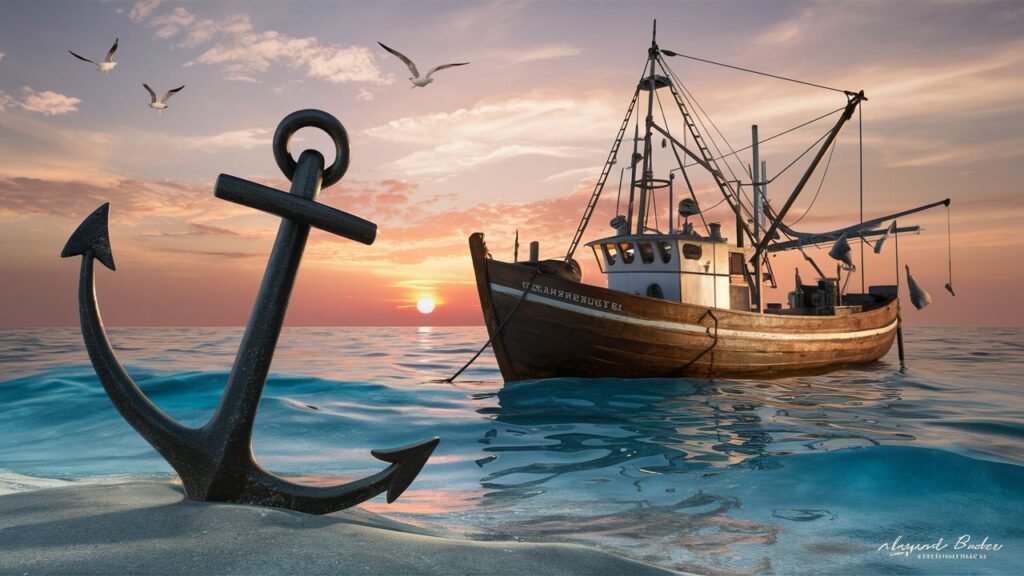
Anchor Usage is essential for fishing boats to stay in position while fishing
. Anchors are used to prevent the boat from drifting away due to currents or wind.
Depending on the size and weight of the boat, different types of anchors are used to secure the boat to the seabed.
Proper anchoring techniques must be followed to ensure the safety and stability of the boat while fishing.
Regularly checking the anchor and its placement is also important to avoid any accidents or malfunctions during fishing trips.
Conclusion:
In conclusion, boaters should slow down when passing recreational fishing boats out of common courtesy, safety concerns, and environmental considerations. Excessive speed when passing fishing boats can create large wakes that may endanger smaller vessels and disrupt fishing activities.
By slowing down and passing at a safe distance, boaters can minimize the risk of accidents, protect the environment, and ensure the safety and enjoyment of everyone on the water.
Additionally, practicing considerate behavior, following proper etiquette, and minimizing wake and damage are essential for promoting safety and harmony on the water.
Boaters should be mindful of their surroundings, communicate effectively with other vessels, and take proactive measures to prevent capsizing, overboard situations, and accidents. By adhering to these principles and considering the needs of others, boaters can contribute to a safer, more enjoyable boating experience for all.
